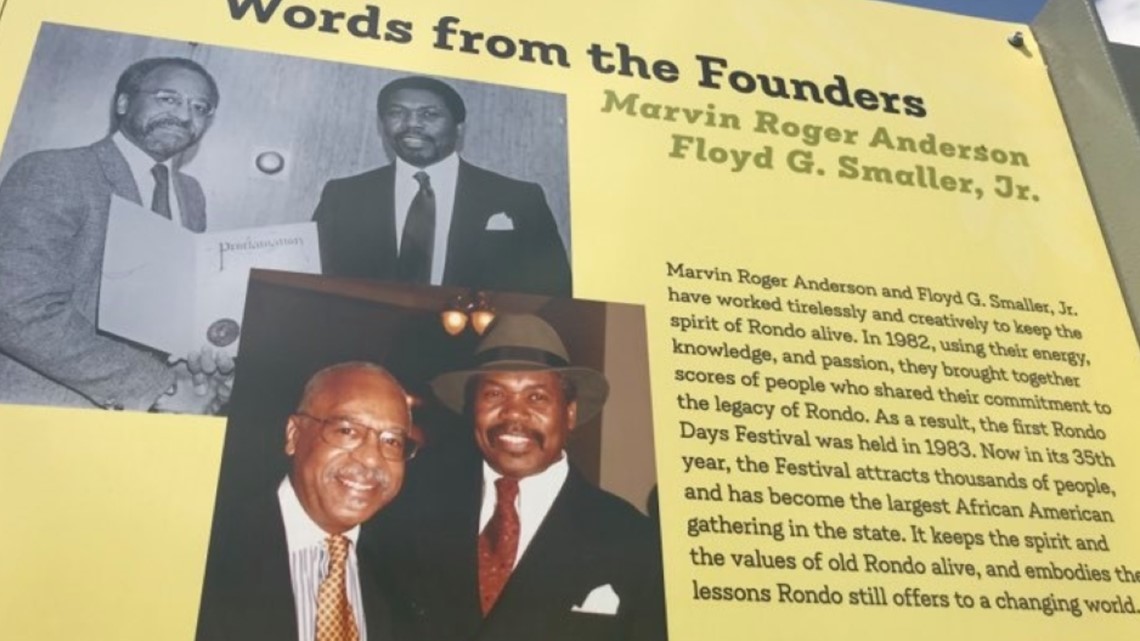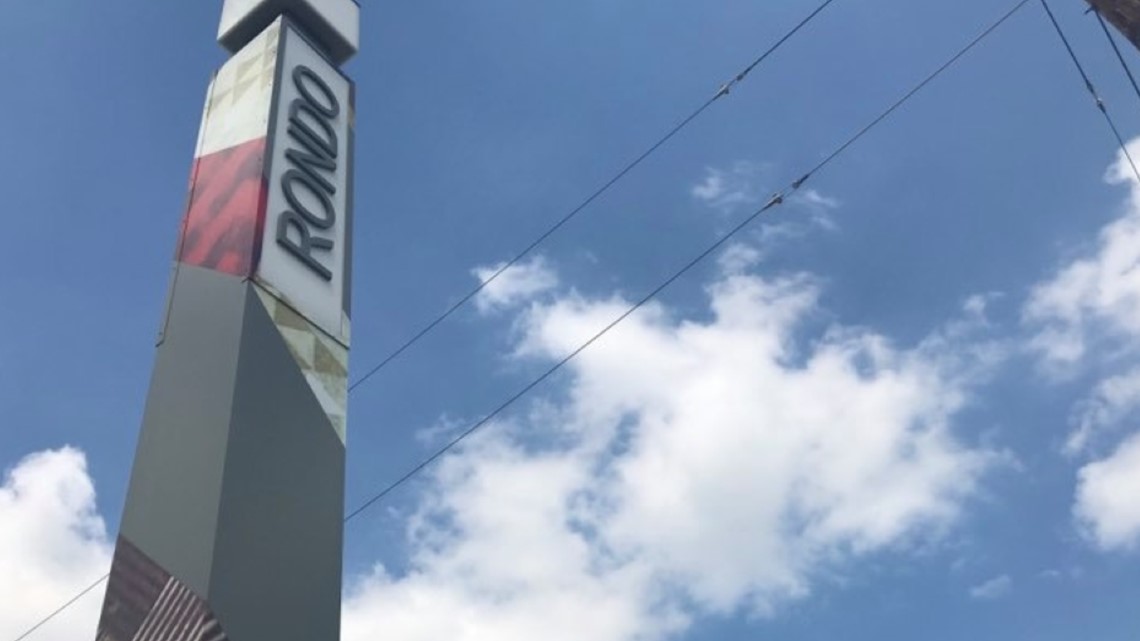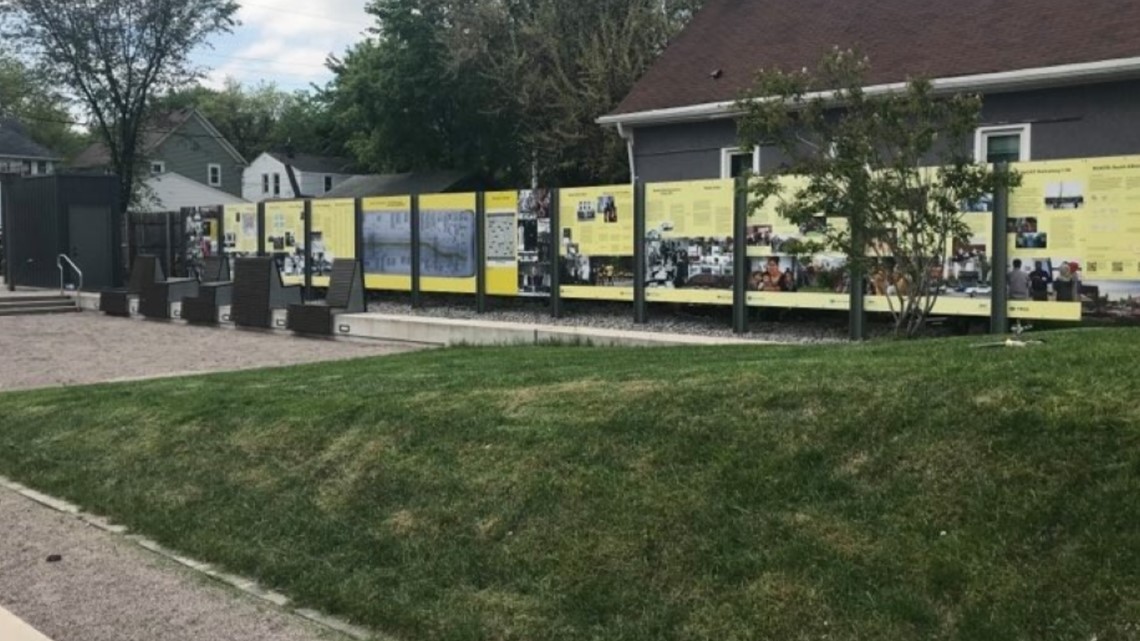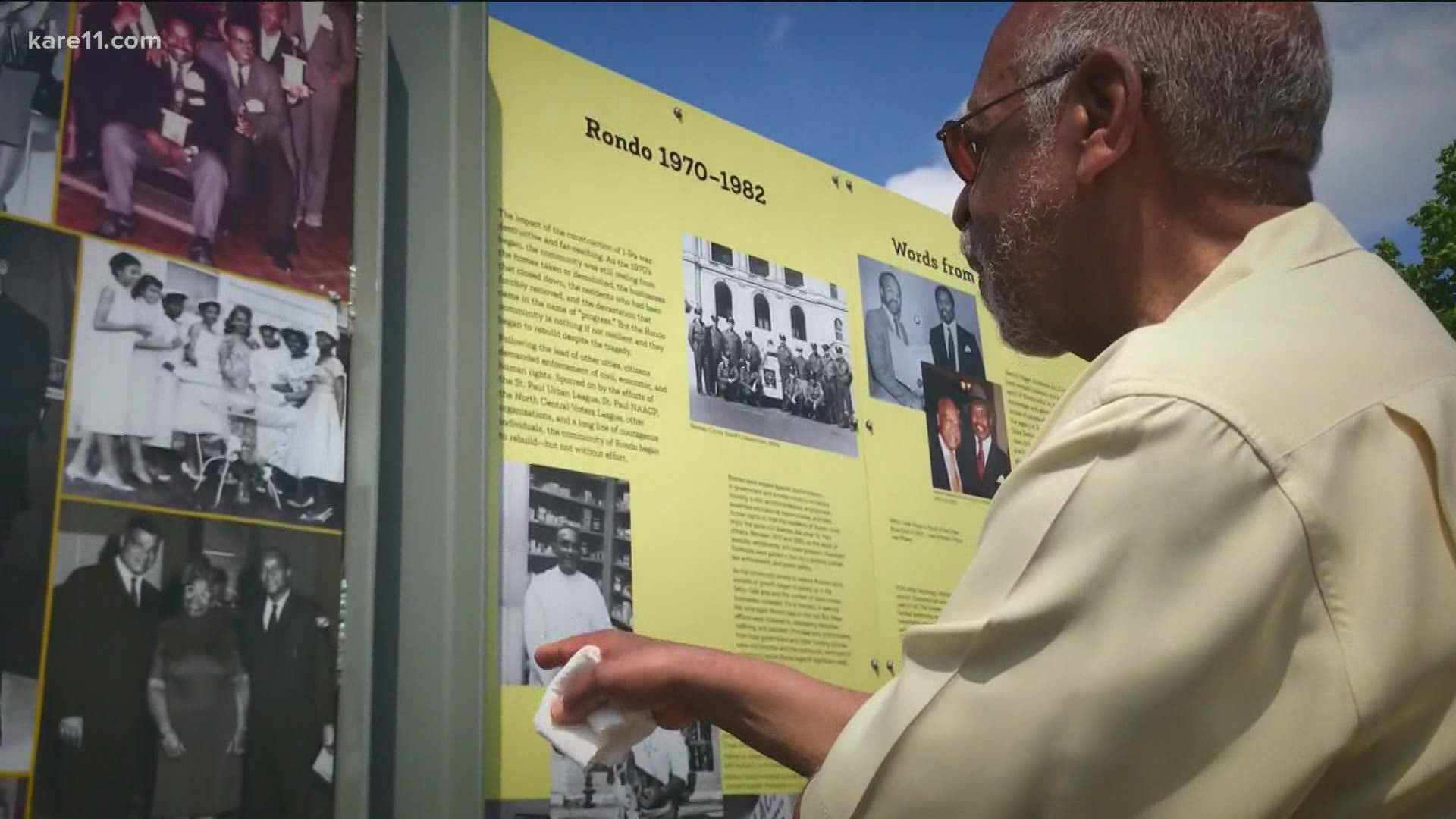ST PAUL, Minn. — Depending on where you’re from, justice can mean many things.
“Justice in the Rondo neighborhood is an opportunity, an equal opportunity to live, to work, to enjoy, to worship, to praise, to live free of fear,” says Marvin Anderson, a long-time Rondo resident and co-founder of Rondo Days.
For 81-year-old Anderson – a well-known and loved keeper of history in St. Paul's Rondo neighborhood. One form of justice comes by reuniting a once thriving predominately Black community razed by highway construction in the late 1950s and early '60s. Right through Rondo Avenue, described by Anderson as the community's heart.
“When you looked out at the homes that were still standing, and you lost all of these touch points, points that really regulated your life in a way,” he says.
Anderson's family have been in the community for more than a century. “My grandfather came to Rondo along with about 18 other Black masons,” he says. “They were recruited to build the state capitol."


To build the highway, more than 700 family homes were destroyed, and 300 businesses were forced to close or torn down. At the time – 80% of St. Paul's African American population called Rondo home. The community was gutted, leaving those who stayed behind – longing for what once existed beneath the pavement. “These problems of America, that have been going on for so long, are in the basement of America,” he says. “We don't go down there, as much as we should."
“This is a real issue,” says Jonathan Palmer, Executive Director of the Hallie Q. Brown Community Center. “This is not a Black issue, but a human issue. It’s not special treatment, it's not extra things, it's just justice, and not being afraid to live and be in your community,” says Palmer. “We have to look at the history within our country."


As America faced yet another tragedy last May with the murder of George Floyd at the hands of former Minneapolis police officer, Derek Chauvin, Palmer says the protests and aftermath felt across the country, forced people to ask the question: “What can we do to spark change?"
"I'm working with people to help them understand what systemic racism is, what the impact is,” says Palmer.
As Anderson points to photos posted at the Rondo Commemorative Plaza, he’s looking toward a proposed land bridge project to reconnect the Rondo community. “Where people can walk into places that used to be and their pictures will be on the wall,” says Anderson.


He says one form of justice is looking beyond the foundation, to help right the wrongs from the past. "George Floyd and all of these African American men whose lives have been taken have shined a light on the basements of America,” says Anderson. "That's where the mold is, that's where the mildew is, that's where the foundation is sinking, and the timber is rotting, but you have to be able to see that to make the changes,” says Anderson.
To learn more about ReConnect Rondo, visit the website here.
If you would like to learn more about the Hallie Q Brown Community Center, visit the website here.

